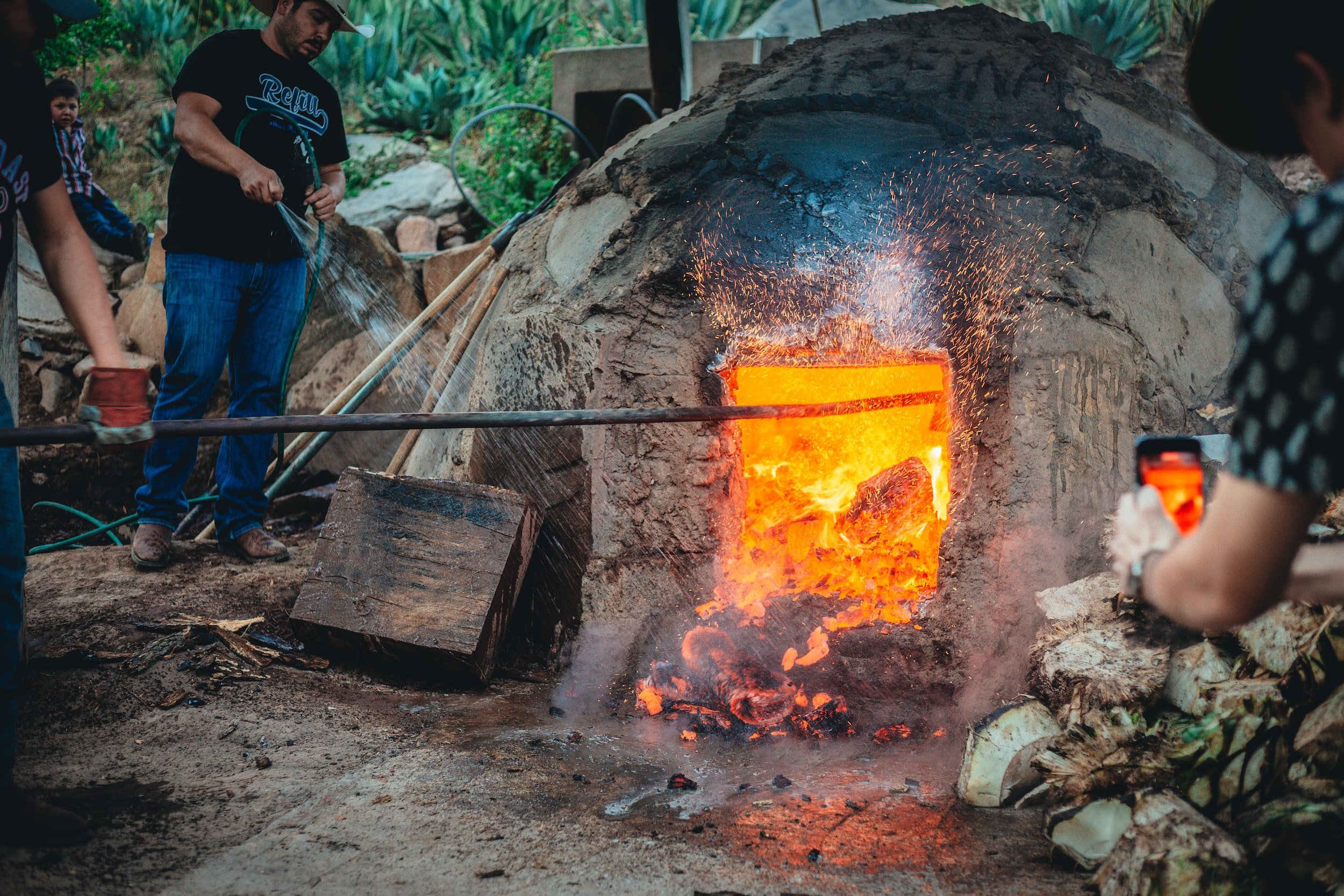Is Mezcal's Global Boom Putting Local Producers at Risk?
A Rising Star in the World of Spirits
Mezcal, a traditional Mexican spirit made from the agave plant, has seen a surge in popularity in recent years. This fiery beverage, known for its complex flavors and rich cultural heritage, is becoming increasingly sought after on the global stage. But is this newfound fame putting local producers at risk? In this article, we explore the potential consequences of mezcal's rapid rise and consider ways in which the industry can support and protect its small-scale artisans.
The Magic of Mezcal: A Brief Overview
Mezcal is a distilled spirit made from the heart of the agave plant, known as the "piña." It is most commonly associated with the southern Mexican state of Oaxaca, where the majority of mezcal production takes place. While many people may associate mezcal with tequila, it's important to note that mezcal and tequila are distinct spirits. Tequila is a specific type of mezcal made from the blue agave plant, while mezcal can be produced from a variety of agave species, such as tobala and cuishe.
The Global Boom: A Double-Edged Sword
The popularity of mezcal has skyrocketed in recent years, leading to a global boom in demand. This surge in interest has brought increased revenue and recognition for the producers, but it also poses several challenges.
1. Sustainability Concerns
The production of mezcal is a labor-intensive process that relies heavily on the use of wild agave plants. As demand grows, the pressure on these wild agave populations increases, raising concerns about the sustainability of mezcal production. Overharvesting can lead to the depletion of wild agave stocks and threaten the long-term viability of the mezcal industry.
2. Loss of Traditional Methods and Practices
Mezcal production is steeped in centuries of tradition, with many small-scale producers using time-honored techniques passed down through generations. However, as the global market expands, there is a risk that these traditional practices could be lost in favor of more industrialized methods. This could result in a loss of the unique flavors and characteristics that make mezcal so special.
3. Cultural Appropriation and Exploitation
The rise in mezcal's popularity has led to an influx of large corporations and foreign investors looking to capitalize on the spirit's success. This can result in a lack of respect for the cultural heritage and traditions that underpin mezcal production. In some cases, this has led to the exploitation of local producers and the appropriation of their cultural identity.
Protecting the Heart and Soul of Mezcal
How can we ensure that the global boom in mezcal's popularity does not come at the expense of local producers and the rich traditions that define this remarkable spirit? Here are some strategies for safeguarding the integrity of mezcal production:
1. Support Small-Scale Producers and Sustainable Practices
One way to help protect local producers is by supporting brands that prioritize sustainable practices and fair trade principles. By choosing mezcal from companies like Entre Maguey, which is deeply committed to social and environmental responsibility, consumers can help ensure that mezcal production remains true to its roots.
2. Promote Education and Transparency
Educating consumers about the production process, the various types of agave used, and the differences between mezcal and tequila can help to foster a deeper appreciation for this unique spirit. Entre Maguey's blog is a fantastic resource for learning more about mezcal's history, production methods, and cultural significance.
3. Preserve Traditional Techniques and Culture
By supporting brands that actively work to preserve traditional production techniques and promote the cultural heritage of mezcal, consumers can help ensure that this spirit remains true to its roots. For example, Entre Maguey is dedicated to sharing its brand story and celebrating the artisanal methods used by their maestro mezcalero.
4. Encourage Responsible Consumption
As mezcal continues to gain popularity, it is crucial for consumers to understand the importance of responsible consumption. By enjoying mezcal in moderation and savoring its unique flavors, we can help to promote a culture of respect for the spirit and its producers.
5. Advocate for Regulatory Measures
Lobbying for stricter regulations and standards within the mezcal industry can help to protect local producers and ensure the continued success of this remarkable spirit. This might include measures to prevent overharvesting, promote sustainable practices, and protect the rights of local artisans.
Conclusion: A Bright Future for Mezcal
The global boom in mezcal's popularity presents both opportunities and challenges for local producers. By supporting small-scale artisans, promoting education and transparency, preserving traditional techniques, encouraging responsible consumption, and advocating for regulatory measures, we can help to ensure that the mezcal industry remains sustainable and true to its rich cultural heritage. Together, we can celebrate and protect the vibrant world of mezcal for generations to come.
Frequently Asked Questions (FAQs)
What is the difference between mezcal and tequila? Tequila is a specific type of mezcal made from the blue agave plant, while mezcal can be produced from a variety of agave species.
What are some examples of different types of mezcal? Some examples of mezcal made from different agave species include tobala, cuishe, and papalote.
How can I support local mezcal producers? You can support local mezcal producers by purchasing mezcal from brands that prioritize sustainable practices, fair trade principles, and the preservation of traditional techniques.
What are some ways to learn more about mezcal? You can learn more about mezcal by visiting Entre Maguey's blog, which provides information on the history, production methods, and cultural significance of this unique spirit.
Where can I purchase mezcal from brands that prioritize sustainability and fair trade? You can purchase mezcal from responsible brands like Entre Maguey through their online shop.

